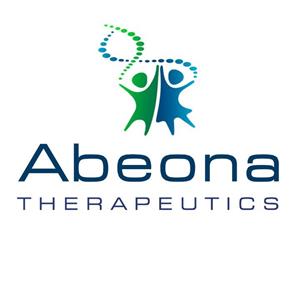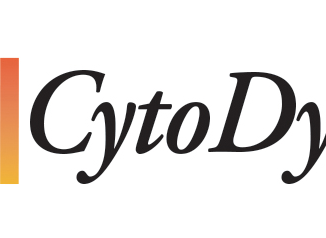
NEW YORK and CLEVELAND, April 20, 2018 – Abeona Therapeutics Inc. (NASDAQ:ABEO), a leading clinical-stage biopharmaceutical company focused on developing novel cell and gene therapies for life-threatening rare genetic diseases, announced today that the European Medicines Agency (EMA) Committee for Orphan Medicinal Products has granted Orphan Drug Designation (EMA/OD/013/18) for Abeona’s gene therapy program ABO-202 for the treatment of subjects with neuronal ceroid lipofuscinosis, also known as Batten Disease, a fatal lysosomal storage disease that primarily affects the nervous system in children. ABO-202 is an adeno-associated virus developed to introduce a functional copy of the CLN1 gene into cells in order to restore the enzyme activity that is needed to break down certain lipopigment proteins that are deficient in patients with CLN1 disease.
“This designation is an important step in our CLN1 program as it encourages us to proceed towards clinical development,” stated Carsten Thiel, Ph.D, CEO of Abeona Therapeutics Inc. “Batten disease, particularly CLN1 disease, is a severely debilitating disorder where patients do not currently have adequate therapeutic options. Compelling pre-clinical data underscore the viability of ABO-202 as a potential treatment for CLN1 disease in humans. We remain committed to our vision of developing transformational gene therapies for patients suffering from devastating rare diseases.”
ABO-202, developed with Steven J. Gray, Ph.D, Associate Professor, Department of Pediatrics, UT Southwestern and the support of Garrett the Grand Batten Fighter, The Saoirse Foundation, Taylor’s Tale, Hayden’s Batten Disease Foundation, and the Batten Disease Support and Research Association, is anticipated to enter clinical trials in 2018.
“ABO-202 is an AAV gene therapy that has shown promising preclinical efficacy utilizing multiple administration routes to ameliorate CNS burden in the CLN1 animal model of disease. ABO-202 improved survival, muscle function and behavior after intrathecal, intravenous and importantly, combination dosing with both routes of administration in CLN1 animals,” stated Steven J. Gray, Ph.D.
ABO-202 has been granted Orphan Drug and Rare Pediatric Disease Designations from the US Food and Drug Administration (FDA). Preclinical data from the program were recently presented at the WORLDSymposium held in San Diego and an update will be presented at the American Society for Gene and Cell Therapy (ASGCT) later this year. Key findings reported included:
The data demonstrate that a single intravenous, single intrathecal (IT) or combination therapy utilizing both administration routes of a self-complementary adeno-associated virus encoding the human CLN1 gene to CLN1 mice significantly increased their survival, improved behavior and reduced motor deficits.
Higher doses further improved these observations, suggesting that methods increasing total CNS exposure may be beneficial and provided some survival and behavioral benefit to symptomatic mice.
A combination approach delivering ABO-202 by both intravenous and intrathecal routes of administration further increased survival efficacy and improved potential treatment options for older animals with advanced disease manifestations.
About CLN1 Disease (infantile and late infantile onset): Infantile and late infantile neuronal ceroid lipofuscinosis is a severe lysosomal disease caused by mutations in the CLN1 gene, which encodes the soluble lysosomal enzyme Palmitoyl-Protein-Thioesterase-1 (PPT1) and result in osmiophilic granules accumulating in lysosomes and leading to neuroinflammation, neurodegeneration and death. CLN1 disease is neurodegenerative, manifests shortly after birth, and is fatal in its classic form by 6 to 12 years of age. In the classic form, aggressive clinical features appear, including rapid speech and motor deterioration, refractory epilepsy, ataxia, myoclonus, and visual failure between the ages of 6 and 24 months. By 5 years of age, CLN1 disease patients with the classic infantile form are typically poorly responsive and are no longer communicative. These patients subsequently die in the following few years.
About European Union (EU) Orphan Drug Designation: The European Commission grants orphan drug designation status to provide incentives to develop medicinal products to treat, prevent or diagnose diseases or conditions that affect no more than five in 10,000 persons in the European Union. The orphan drug designation provides Abeona with incentives and benefits in the EU, including protocol assistance, reduced fees and protection from market competition once ABO-202 is approved for patients with CLN1 disease.
About Abeona: Abeona Therapeutics Inc. is a clinical-stage biopharmaceutical company developing cell and gene therapies for life-threatening rare genetic diseases. Abeona’s lead programs include EB-101 (gene-corrected skin grafts) for recessive dystrophic epidermolysis bullosa (RDEB), ABO-102 (AAV-SGSH), an adeno-associated virus (AAV) based gene therapy for Sanfilippo syndrome type A (MPS IIIA) and ABO-101 (AAV-NAGLU), an adeno-associated virus (AAV) based gene therapy for Sanfilippo syndrome type B (MPS IIIB). Abeona is also developing ABO-201 (AAV-CLN3) gene therapy for CLN3 disease, ABO-202 (AAV-CLN1) for treatment of CLN1 disease, EB-201 for epidermolysis bullosa (EB), ABO-301 (AAV-FANCC) for Fanconi anemia (FA) disorder and ABO-302 using a novel CRISPR/Cas9-based gene editing approach to gene therapy for rare blood diseases. In addition, Abeona is developing a proprietary vector platform, AIM™, for next generation product candidates. For more information, visit www.abeonatherapeutics.com.
Investor Contact:
Christine Silverstein
SVP, Finance & Investor Relations
Abeona Therapeutics Inc.
+1 (646) 813-4707
csilverstein@abeonatherapeutics.com
Media Contact:
Lynn Granito
Berry & Company Public Relations
+1 (212) 253-8881
lgranito@berrypr.com
This press release contains certain statements that are forward-looking within the meaning of Section 27a of the Securities Act of 1933, as amended, and that involve risks and uncertainties. These statements are subject to numerous risks and uncertainties, including but not limited to continued interest in our rare disease portfolio, EMA orphan drug designation for ABO-202 provides Abeona certain benefits and incentives, including marketing exclusivity, that are strategically important from a regulatory and commercial perspective, our preclinical work for ABO-202 and the recently published data supporting its clinical translation for patients with CLN1 disease demonstrated the importance of selecting the right vector and delivery route to target tissues in the CNS and treat the symptoms associated with the underlying disease pathology, we look forward to advancing the ABO-202 program, our ability to enroll patients in clinical trials, the impact of competition; the ability to develop our products and technologies; the ability to achieve or obtain necessary regulatory approvals; the impact of changes in the financial markets and global economic conditions; and other risks as may be detailed from time to time in the Company’s Annual Reports on Form 10-K and other reports filed by the Company with the Securities and Exchange Commission. The Company undertakes no obligations to make any revisions to the forward-looking statements contained in this release or to update them to reflect events or circumstances occurring after the date of this release, whether as a result of new information, future developments or otherwise.


